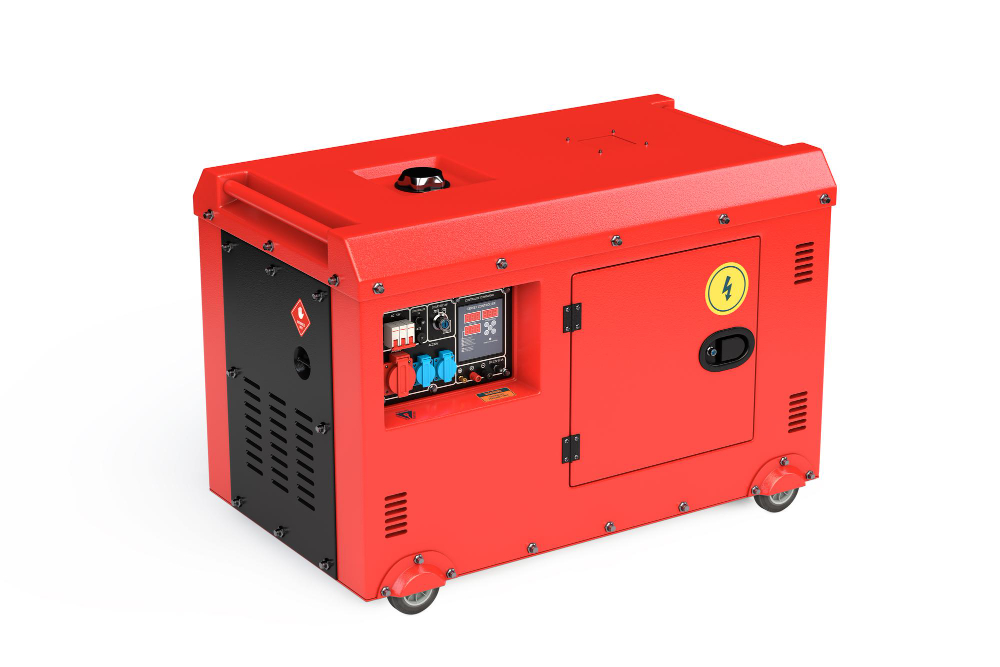The Complete Guide to Running a Generator and Understanding the Costs

In areas like Winter Park, FL, where weather events can lead to unexpected power outages, having a generator is not just a convenience—it's a necessity. Whether you’re preparing for hurricane season or ensuring your business operates seamlessly, understanding the costs associated with running a generator is crucial. This guide will walk you through everything you need to know about operational costs, efficiency, and expert tips on making the most of your generator investment.
Why You Might Need a Generator
Generators provide backup power during outages, allowing you to maintain normalcy even when the grid fails. Whether it's keeping essential services running in your business or ensuring comfort at home, generators are valuable assets.
Key Reasons to Consider a Generator:
- Protection against power outages
- Ensured continuity for businesses
- Comfort and safety for homes
Types of Generators and Their Costs
Before we discuss the running costs, let's look at the types of generators available:
Portable Generators
Portable generators are ideal for short-term power needs. They are easy to move and can power essential appliances.
- Cost: $500 - $2,500
- Fuel: Gasoline or diesel
- Applications: Home use for powering lights, refrigerators, and small appliances
Standby Generators
Standby generators are permanently installed and automatically start during power outages.
- Cost: $3,000 - $10,000 (excluding installation)
- Fuel: Natural gas or propane
- Applications: Whole house or business continuity
Inverter Generators
Perfect for sensitive electronics, inverter generators offer clean and stable power.
- Cost: $400 - $4,000
- Fuel: Gasoline
- Applications: Camping, recreational use, and small household needs
Costs of Running a Generator
To understand the cost of operating a generator, consider fuel consumption, maintenance, and potential installation expenses.
Fuel Consumption
Fuel is the most significant ongoing cost of running a generator. Here’s what to consider:
- Efficiency: Measured in gallons per hour. More efficient models use less fuel.
- Type of Fuel: Natural gas and diesel are typically cheaper than gasoline.
Example Calculation:
A typical 5,000-watt generator runs approximately 8 hours on 5 gallons of gasoline. If gasoline costs $3 per gallon, the cost is roughly $15 per day.
Maintenance Costs
Regular maintenance ensures your generator runs efficiently and extends its lifespan.
- Oil Changes: Every 100 hours of operation
- Air Filters: Replace every 200-300 hours
- Cost: $50 - $200 annually for basic maintenance
Installation Costs
For standby generators, installation costs can be significant due to the need for professional wiring and setup.
- Professional Installation: $500 - $3,000 depending on the complexity
Tips for Reducing Generator Costs
- Choose the Right Size: Oversized generators waste fuel; undersized ones risk damage. Determine power needs before purchasing.
- Perform Regular Maintenance: A well-maintained generator operates more efficiently, reducing fuel consumption and repair costs.
- Consider Fuel Type: Propane and natural gas may be more cost-effective in the long term than gasoline.
- Invest in Energy-Efficient Appliances: Reduce the total power needed to run your home or business during an outage.
Understanding Generator Efficiency
Efficiency is key when running a generator, especially during extended outages.
How to Measure Efficiency:
- Load Percentage: Operating close to full capacity improves efficiency.
- Fuel Type: Different fuels have different energy yields.
- Operational Hours: Longer, continuous operation can lead to better fuel efficiency.
When to Call in the Professionals
While some maintenance tasks are DIY-friendly, others require professional expertise. If you're looking for trusted electricians in Winter Park, FL, contact Spectrum Electric today to schedule an appointment. They provide expert generator installation and maintenance services to ensure your power backup system is trustworthy and efficient.
Conclusion
Investing in a generator is a smart move for both homeowners and businesses in Winter Park, FL. By understanding the types of generators, their costs, and how to maximize efficiency, you can ensure you're prepared for any power disruptions. Remember, regular maintenance and choosing the right generator for your needs are crucial for cost-effectiveness. For any electrical needs or generator services, Spectrum Electric is here to help ensure your peace of mind.
